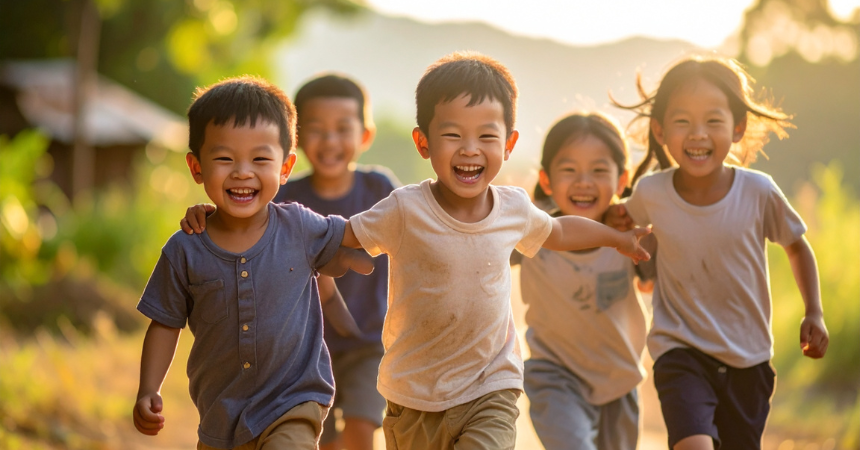Nurturing Seeds of Hope in Children


July 12 is International Day of Hope, a day recognized by the United Nations to promote hope as a powerful force for positive change. It was formally recognized by the United Nations on March 4, 2025, so this is also a special moment because this is the very first International Day of Hope.
This day was established to encourage people to cultivate and share hope as a vital skill for wellbeing and social progress. As we struggle in an unpredictable and increasingly challenged world, hope is a vital and learnable skill that helps us to transform and create better futures for our families and communities. It also provides us with an optimistic mindset that can help us overcome even the most challenging of times.
Hope is unique to our human condition. It motivates us to take actionable steps towards beneficial transformations in our lives, which can also extend to positive outcomes for others. This makes hope a truly powerful force for positive change, as it can spread from one person to another. Like seeds, small actions of hope can take root and grow in unexpected places.
As important as hope is for adults, it is absolutely vital that we guide young children in how to be hopeful. Hope is a critical skill that can be taught, and it nurtures a mindset that fosters a positive outlook, which is critical in such a fast paced and often confusing world. Educators, parents, caregivers, family members, and many others can help to support children to develop hopeful outlooks.
Cultivating hope can help children in multiple ways, as it acts as a buffer against adversity, improves their mental health, helps them to build resilience, cope with challenges, and develop a sense of purpose and meaning in life.
Hopeful children tend to form more positive relationships with others, experience lower levels of stress, anxiety, and depression. They are more likely to have higher self-esteem, believe in themselves, and feel a stronger sense of purpose. It can also lead to better outcomes in life because hope not only contributes to children’s overall wellbeing but it encourages them to problem-solve and set and achieve goals.
It is hard for many of us to be hopeful in such distressing times of conflict, war, and political and economic shifts that seem to be harming so many people, rather than helping them to lead better lives. However, if we cultivate hope in our lives, we can begin to think more clearly about creative and positive ways to counter the negativity that often seems to surround us.
Perhaps in moments when we are losing hope, it is actually the most crucial time for us all to help to plant the seeds of hope and, in particular, help children to grow hopeful mindsets that will protect them from the storms of life that surround us. Let’s help to scatter seeds of hope, not just on the International Day of Hope, but every day.
At Childhood Education International, we believe that children’s physical, mental, and emotional well-being supports their overall development and learning which helps them to grow and learn optimally while building the skills required to reach their full potential.
Explore free professional development resources. Materials focus on social-emotional learning, holistic learning, trauma-informed practice, and more.
Our webinar library features recordings from prior events. Topics include holistic learning, innovation, wellbeing, disability inclusion, and more.
From birth onward, children are learning lessons about the world around them and their place in it. Our Global Schools First program supports primary schools as they educate their students to be active global citizens.
 Diane Whitehead, President & CEO
Diane Whitehead, President & CEODiane Whitehead has dedicated her career to issues that affect the lives of children and families. She specializes in global education, children’s education and learning, the human right to education, nonprofit leadership, management, strategic direction-setting, and program development.
Through her strategic guidance and management of this 130+year-old organization, Diane has expanded its global reach, built partnerships with education-focused organizations around the world, designed impactful programs, and participated in key international education forums and United Nations’ initiatives, a recognition of her commitment to transforming education. As Chief Executive Officer, she is dedicated to building CE International’s relevancy, reach, and impact.
Diane is the creator of Education Diplomacy and co-author of the Education Diplomacy Professional Standards. She also co-authored the International Principles of Practice for Educators to guide and inspire practitioners and to elevate the education profession by highlighting the incredible service that educators provide to both international and human development. Both Education Diplomacy and the International Principles of Practice are forging new pathways for the professional development of educators.
Diane is available to speak on education topics, leadership, change management, and the future of humanity. If you would like to invite Diane for a speaker engagement at a conference or event, please contact Michelle Allen, at mallen@ceinternational1892.org.
CE International offers consulting and technical assistance services to help schools, organizations, and government ministries develop and enhance their early childhood development services. We focus on early childhood education and the holistic supports that are essential for children’s health and wellbeing.